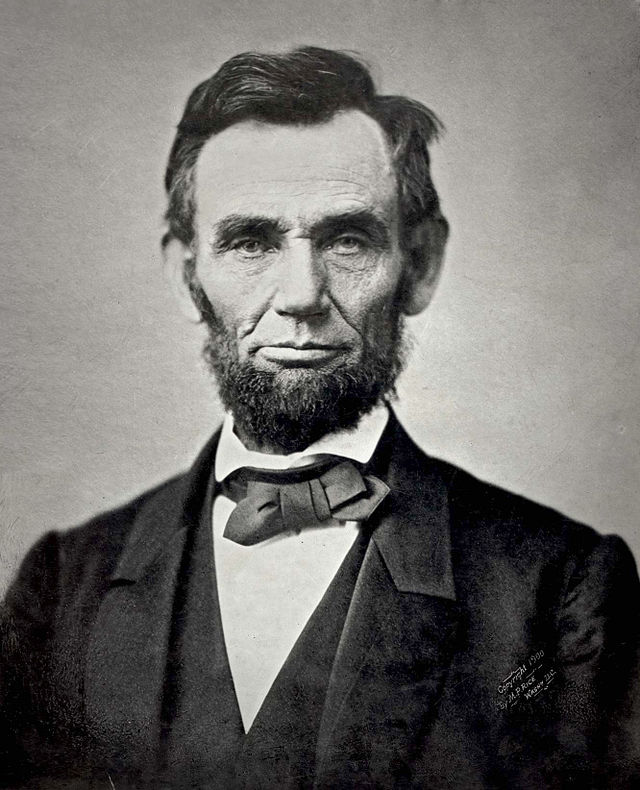Turning point: Lincoln’s assassination and the one person who could have stopped it
 It was 150 years ago, the
morning of April 15, 1865 that a major turning point in world history occurred.
President Abraham Lincoln died after being mortally wounded the night before as
he watched a play in Ford’s Theater in Washington DC. His assassin, John Wilkes
Booth, was on the run and there was a massive manhunt for him and his
co-conspirators. In the urgency to catch Booth, one person that played a major
role in the assassination escaped the attention of the authorities. His name
was John Parker.
It was 150 years ago, the
morning of April 15, 1865 that a major turning point in world history occurred.
President Abraham Lincoln died after being mortally wounded the night before as
he watched a play in Ford’s Theater in Washington DC. His assassin, John Wilkes
Booth, was on the run and there was a massive manhunt for him and his
co-conspirators. In the urgency to catch Booth, one person that played a major
role in the assassination escaped the attention of the authorities. His name
was John Parker.
In hunting down Booth, the
authorities left no rock unturned, or so it seemed. Lewis Powell had attempted
to kill Secretary of State William Seward at the same time Lincoln was shot.
Seward was badly slashed, but survived his wounds and Powell was arrested. George
Atzerodt was supposed to kill Vice President Andrew Johnson at the same time,
but he lost his nerve and never made the attempt. Atzerodt was also arrested,
as were Mary Surratt, David Herold, and four other people associated with
Booth, including the doctor who set his broken leg. They all were put on trial.
Four of them were sentenced to hang. Four were sent to prison. But John Parker,
possibly the person who, outside of Booth, could have, and many believe should
have, been held responsible for the president’s death was overlooked.
What was John Parker’s role
in the assassination of Abraham Lincoln? He was the policeman assigned to the
president’s detail that evening – an 1860s version of his secret service agent.
When Booth entered the president’s private box, he should have encountered
Parker, the man who had been assigned to guard the Lincolns. Instead, Parker
had left his post at the rear entrance to the viewing box, exited the theater and
went to a saloon across the street to have a drink.
Parker’s dereliction of duty
changed the world. It has left many people to speculate what would have
happened if he had been doing his job that night. Booth was not a large man and
did not carry enough ammunition to shoot everyone who was sitting in the president’s
box. It is reasonable to believe that Booth would have been overcome and
arrested without ever getting close to Lincoln. One person doing their assigned
duty would have changed history.
Now this has all kinds of
application to staying true to your work, being diligent and not getting
distracted in the most mundane of tasks. One person doing their best can have a
profound impact on all of us. However, the real application goes beyond this.
Oddly enough, Parker was not fired from his job! In fact, he was left on the
same White House detail, providing secret service duties for Mary Todd Lincoln
after her husband’s death. He remained with the District of Columbia’s Metro
Police Force for another three years before he was fired for, of all things,
sleeping on the job. Leaving the president of the United States unguarded while
you had a drink with friends was excused, but falling asleep on the job was not
tolerated?
I have
a friend who has a phrase that he quotes often in these kinds of situations. He
says you promote what you permit. In other words, when you let something slip
in those whom you have put in charge, you are in essence excusing their behavior
as acceptable. The records show that Parker had a habit of showing up late to
work, carousing with the wrong crowd, and being where he shouldn’t when he was
at work. Why he was assigned as one of four bodyguards for the president goes
beyond reason. But the person who could have stopped Lincoln’s assassination
may very well be Parker’s supervisor who let it all slide rather than fixing
the situation. The real turning point in the assassination of Abraham Lincoln
may have happened long before Booth and his group of conspirators decided to
kill the president. It may have happened the first time a Metro Police supervisor
turned a blind eye to a problem in an officer.